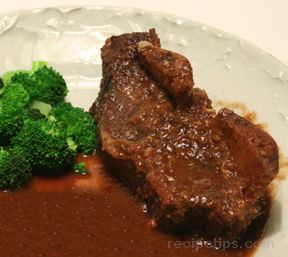Do Hair-Growth Supplements Actually Work? Our Experts Weigh In
Luscious locks—or even just a full head of hair—are something that many people crave. But all thanks to factors like genetics, stress, certain medical conditions (like hypothyroidism) and taking certain medications, your #hairgoals aren't always within your reach. Because of this, many people may turn to hair-growth supplements to help give their mop a boost.
Many people long for luscious locks, or even just a full head of hair. But your #hairgoals aren't always achievable because of things like heredity, stress, certain medical conditions (like hypothyroidism), and taking certain medications. As a result, a lot of people might use hair-growth supplements to help bolster their mop.
So are supplements that claim to be a hair-growth solution actually helpful in giving us a mane fit for Instagram, or are these pills worth skipping? We asked some experts to weigh in, and you might be surprised by their responses.
What Are Hair-Growth Supplements?
To start with, the term "hair-growth supplement" has no official definition. Supplements falling under this category include ingredients like certain (or a combination of) nutrients and/or botanicals that are thought to promote hair growth. These supplements are suitable for a variety of populations, including those suffering from partial alopecia or postpartum hair loss.
Types and Varieties
There are different types and varieties of hair-growth supplements, and certain options may be more appealing as they cater to specific challenges. Here are some groupings that you can expect to find if you are shopping for hair-growth supplements:
1. Vitamins and Minerals
Hair loss is associated with specific vitamin and mineral deficiencies. According to a 2019 review published in Dermatology and Therapy, nutrients such as vitamins A, B, C, D, and E, iron, selenium, and zinc are frequently included in these supplements.
2. Proteins and Amino Acids
Your cells are made of amino acids, some of which can be found in supplements that promote hair growth. Popular amino acids found in these hair options include L-cystine, L-lysine, and L-methionine.
3. Herbs and Botanicals
An investigation published in the Journal of Cosmetic Dermatology in 2022 and a review published in Skin Appendage Disorders in 2020 have indicated a possible correlation between hair growth and certain botanicals, such as saw palmetto, capsaicin, and curcumin, in cases of alopecia and hair thinning. According to a 2021 study published in Nature, some supplements, like ashwagandha, can help people manage their stress, which may in turn help support hair growth as there is a known link between stress and hair loss, especially if you have an underlying condition like alopecia.
What Nutrients Promote Hair Health?
"The effectiveness of hair supplements is still being studied, according to registered dietitian Melissa Mitri, M.D., RDN. "What we know is that if you have an existing vitamin or mineral deficiency, especially of one that impacts hair growth, you are more likely to reap the benefits of these hair supplements."
Mitri shared the following nutrients that may promote hair health:
- Biotin. "One of the most often used nutrients to support healthy hair is biotin. Your hair is made mostly of a protein called keratin, which can have its structure improved by biotin. It is claimed to potentially enhance scalp coverage and hair volume, particularly if you already have a deficiency."
- Folic acid. "Another vitamin in the B vitamin family that may be good for hair health is folic acid. Folic acid promotes the growth of new, healthier hair cells and aids in the process of cell synthesis."
- Vitamin E. "An antioxidant vitamin, vitamin E can aid in the body's defense against oxidative damage. Because oxidative stress can have a detrimental effect on hair health, vitamin E is an excellent nutrient to add to your healthy hair regimen.
- Zinc. "Zinc is a trace mineral that can be beneficial for hair growth. A zinc deficiency can also lead to alopecia (hair loss and/or thinning)."
In addition to these nutrients, board-certified dermatologist Maria Garshick, M.D., FAAD, mentioned that vitamin D is an important nutrient that can affect the health of hair. "Vitamin D deficiency has been linked to hair thinning and hair loss," she said. A good all-around supplement option, vitamin D has been shown to activate hair follicles and assist in the absorption of other nutrients like calcium and magnesium.
A systematic review on hair supplements was released by the American Medical Association in the journal JAMA Dermatology in 2022.30 previously published studies were reviewed, and the researchers concluded that "the highest-quality evidence showed the potential benefit of taking certain brands of hair supplements: Viviscal, Nourkrin, Nutrafol, Lamdapil, and Pantogar." Supplemental "capsaicin, isoflavone, omegas 3 and 6 with antioxidants, apple nutraceutical, total glucosides of paeony and compound glycyrrhizin tablets, zinc, tocotrienol, and pumpkin seed oil" was also found to have some benefit for hair growth. For every therapy that was assessed, adverse effects were infrequent and mild.
What's Your Reaction?






















































































